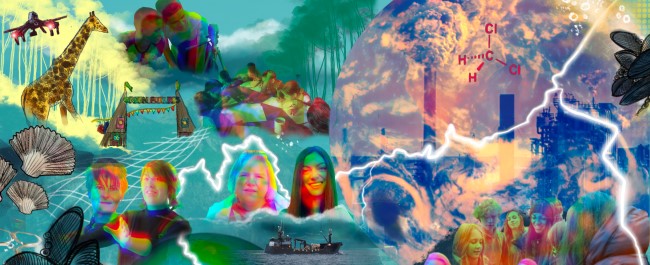Environmental change
We integrate expertise across multiple disciplines to provide the evidence base and solutions to tackle the world's most pressing environmental challenges.
Contact the environmental change research leads
Dr Alice Venn (University of Bristol Law School)
Dr Katharina Richter (Sociology, Politics and International Studies)
Dr Ce Zhang (Geographical Sciences)
We are a member of the All-Party Parliamentary Group on Climate Change
The APPCCG is the leading forum informing the climate change discussion between parliamentarians, business leaders, NGOs and academics. We are regularly involved in a number of key discussions to ensure climate change policy is well-informed in Westminster.
-
 Reducing Nitrous Oxide emissions from grasslands by inoculating them with beneficial rhizobia
Nitrous oxide is a potent greenhouse gas with 300 times the warming potential of carbon dioxide and agriculture is the largest anthropogenic source. Utilising the soil microbiome could hold the key to reducing emissions.
Reducing Nitrous Oxide emissions from grasslands by inoculating them with beneficial rhizobia
Nitrous oxide is a potent greenhouse gas with 300 times the warming potential of carbon dioxide and agriculture is the largest anthropogenic source. Utilising the soil microbiome could hold the key to reducing emissions. -
 Spotting scavengers: automatic species identification and counting
In India, scavenging vultures saw a greater than 95% decline in population due to a painkiller given to cattle, allowing deadly bacteria and infections to proliferate in humans. Understanding the risk in other parts of the world is essential to avoid another conservation catastrophe.
Spotting scavengers: automatic species identification and counting
In India, scavenging vultures saw a greater than 95% decline in population due to a painkiller given to cattle, allowing deadly bacteria and infections to proliferate in humans. Understanding the risk in other parts of the world is essential to avoid another conservation catastrophe. -
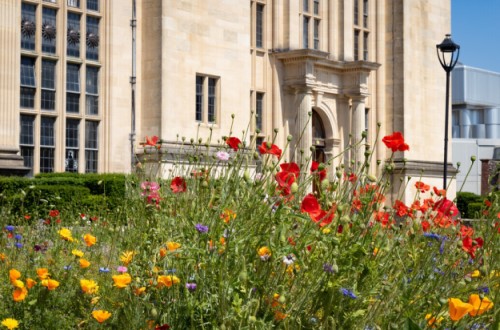 Embedding sustainability in research: The perspective of researchers from multiple disciplines across the University of Bristol
The carbon footprint of university research activity is substantial. Reducing the environmental impact of research would decrease carbon emissions and help the Higher Education sector meet its net-zero goals.
Embedding sustainability in research: The perspective of researchers from multiple disciplines across the University of Bristol
The carbon footprint of university research activity is substantial. Reducing the environmental impact of research would decrease carbon emissions and help the Higher Education sector meet its net-zero goals. -
 Forams as observers of anthropogenic microplastics
Plastic pollution is so widespread that microplastics are found in food chain of most ecosystems, but we are still in the early stages of uncovering the extent of the problem and the threat to marine ecosystems.
Forams as observers of anthropogenic microplastics
Plastic pollution is so widespread that microplastics are found in food chain of most ecosystems, but we are still in the early stages of uncovering the extent of the problem and the threat to marine ecosystems. -
 Using atmospheric greenhouse gas measurements to improve UK food security
Food security in the 21st century will ultimately depend on our ability to mitigate the climate crisis. Agricultural fertilisers are a key component of food security but have negative impacts on our climate and ecology.
Using atmospheric greenhouse gas measurements to improve UK food security
Food security in the 21st century will ultimately depend on our ability to mitigate the climate crisis. Agricultural fertilisers are a key component of food security but have negative impacts on our climate and ecology. -
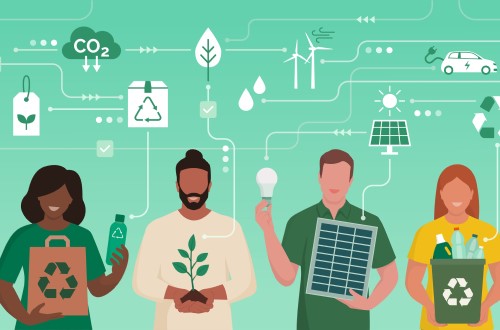 Bringing global perspectives to enhance degrowth
Do we need to reframe our relationship with nature to solve our biggest global crises?
Bringing global perspectives to enhance degrowth
Do we need to reframe our relationship with nature to solve our biggest global crises? -
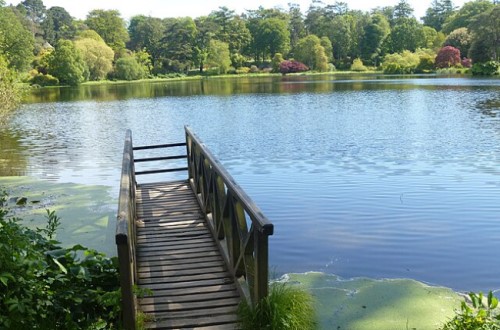 Helping Mount Stewart adapt to the climate
When storm surges and climate change threaten one of the world’s most outstanding gardens, how do you plan its future?
Helping Mount Stewart adapt to the climate
When storm surges and climate change threaten one of the world’s most outstanding gardens, how do you plan its future? -
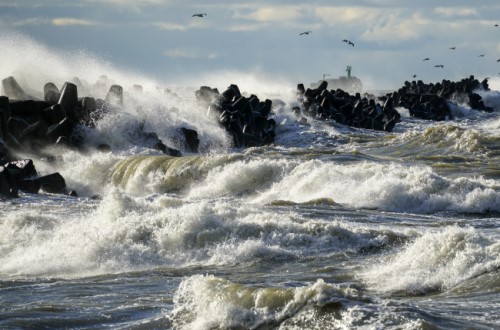 Structured porous breakwaters to protect UK coastlines from the effects of climate change
Sea-level rise and more frequent and intense storms are impacting coastal communities, with coastal flooding, erosion and damage to infrastructure. Novel breakwater designs have the potential to increase the resilience of UK coastlines to these climate change related events.
Structured porous breakwaters to protect UK coastlines from the effects of climate change
Sea-level rise and more frequent and intense storms are impacting coastal communities, with coastal flooding, erosion and damage to infrastructure. Novel breakwater designs have the potential to increase the resilience of UK coastlines to these climate change related events. -
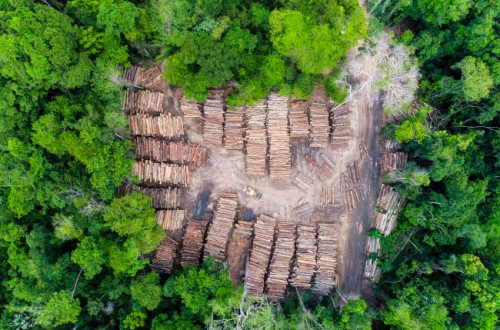 Voices of Amazonia: knowledge co-production to enhance environmental policy and practices
Bringing together scientists, Indigenous leaderships and decision-makers to identify and prioritise the most pressing questions for biodiversity conservation in Amazonia, through knowledge co-production.
Voices of Amazonia: knowledge co-production to enhance environmental policy and practices
Bringing together scientists, Indigenous leaderships and decision-makers to identify and prioritise the most pressing questions for biodiversity conservation in Amazonia, through knowledge co-production. -
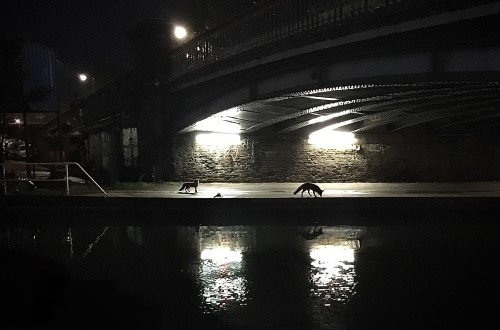 Beyond the light: investigating nocturnal animal senses
Humans aren’t built for darkness, so we still know very little about the senses of creatures that inhabit dark spaces.
Beyond the light: investigating nocturnal animal senses
Humans aren’t built for darkness, so we still know very little about the senses of creatures that inhabit dark spaces. -
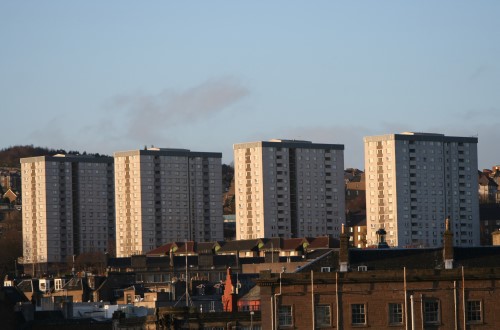 Helping make climate action more inclusive
How do you facilitate a just transition if city-level environmental policymaking is inherently unjust?
Helping make climate action more inclusive
How do you facilitate a just transition if city-level environmental policymaking is inherently unjust? -
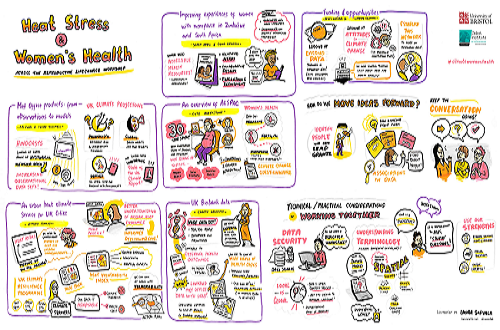 Heat stress and women’s health over the reproductive life course
Bringing together researchers from multiple disciplines to find out the effects of rising heat stress on women’s health.
Heat stress and women’s health over the reproductive life course
Bringing together researchers from multiple disciplines to find out the effects of rising heat stress on women’s health. -
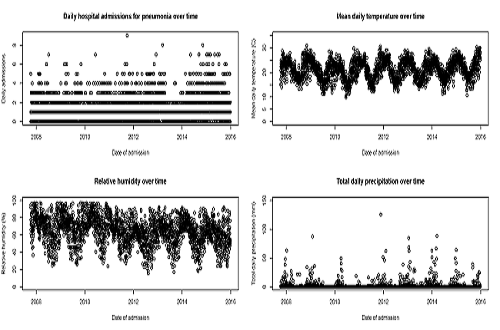 Understanding vulnerability and health impacts of climate change in South Africa
Modelling the relationship between meteorology and disease to help healthcare systems prepare for the impacts of climate change
Understanding vulnerability and health impacts of climate change in South Africa
Modelling the relationship between meteorology and disease to help healthcare systems prepare for the impacts of climate change -
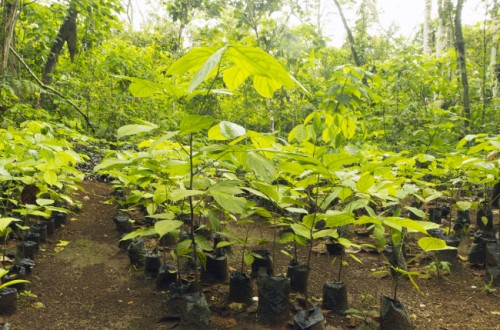 Developing partnerships for indigenous reforestation
Developing practical models for reforestation that respect the knowledge, livelihoods and rights of forest-based communities
Developing partnerships for indigenous reforestation
Developing practical models for reforestation that respect the knowledge, livelihoods and rights of forest-based communities -
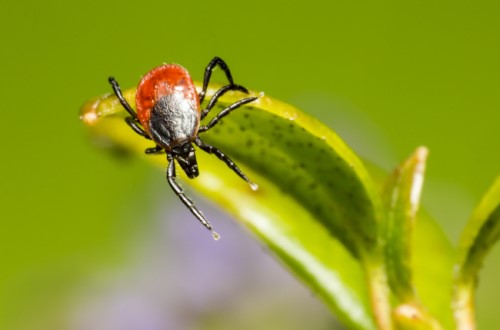 Targeting the host-pathogen interface to tackle tick-borne diseases
How can we secure food production in the face of a changing environment which increases the range of ticks?
Targeting the host-pathogen interface to tackle tick-borne diseases
How can we secure food production in the face of a changing environment which increases the range of ticks? -
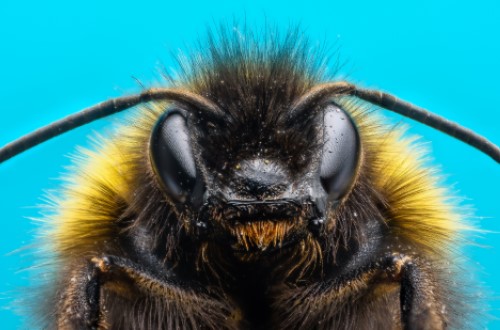 Revealing how bees sense electric fields: material properties of bee antennae using x-rays
Understanding the effects of anthropogenic change on the function of bee sensory systems and the impact that these changes may have on both pollination biology and population dynamics.
Revealing how bees sense electric fields: material properties of bee antennae using x-rays
Understanding the effects of anthropogenic change on the function of bee sensory systems and the impact that these changes may have on both pollination biology and population dynamics. -
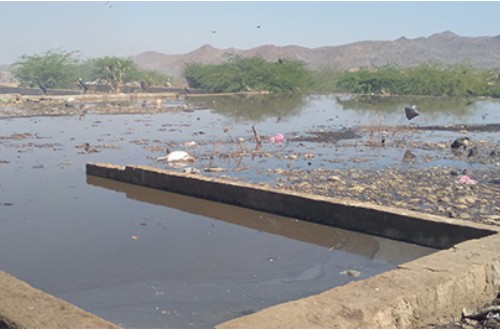 Sanitation and climate: assessing resilience and emissions (SCARE)
Toilets. Everyone should have access to one. Understanding how emissions from sanitation and resilience of services can be improved will help achieve universal access.
Sanitation and climate: assessing resilience and emissions (SCARE)
Toilets. Everyone should have access to one. Understanding how emissions from sanitation and resilience of services can be improved will help achieve universal access. -
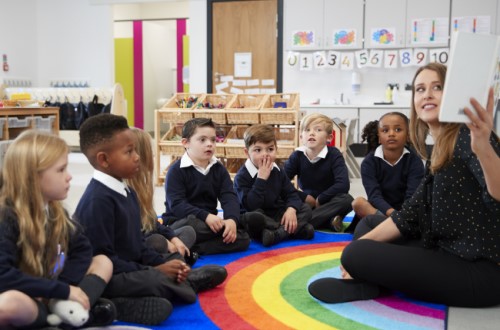 Climate science into classrooms
Empowering students as agents of change.
Climate science into classrooms
Empowering students as agents of change. -
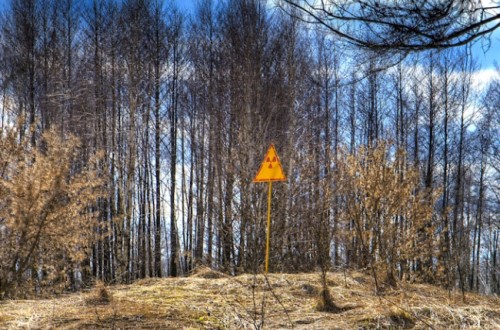 Another Chernobyl?
Implementing a low-cost environmental and aerosol monitoring provision inside the Chernobyl Exclusion Zone for seasonal and wild-fire event monitoring and risk management.
Another Chernobyl?
Implementing a low-cost environmental and aerosol monitoring provision inside the Chernobyl Exclusion Zone for seasonal and wild-fire event monitoring and risk management. -
 Waves of change: inspiring youth climate action in Cornish coastal communities
Engaging young people in climate change research and empowering them to take positive climate action.
Waves of change: inspiring youth climate action in Cornish coastal communities
Engaging young people in climate change research and empowering them to take positive climate action. -
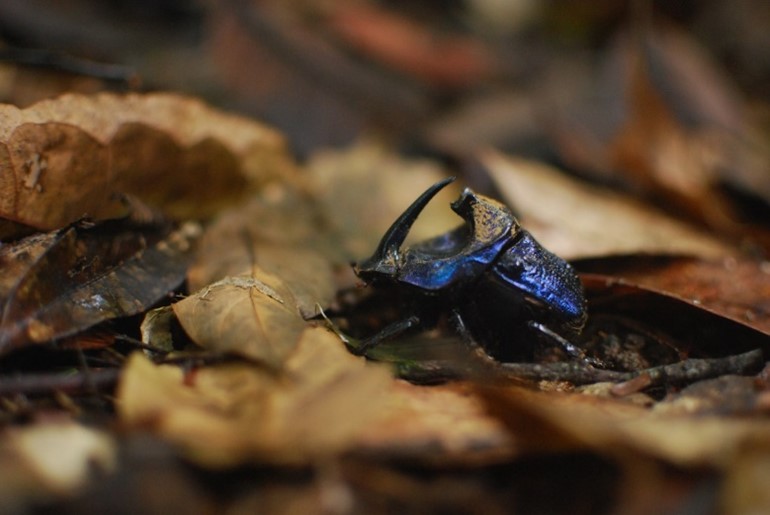 Quantifying the role played by animals to forest recovery
The conservation of tropical rainforests is one of the most cost-effective solutions to slow down climate change.
Quantifying the role played by animals to forest recovery
The conservation of tropical rainforests is one of the most cost-effective solutions to slow down climate change. -
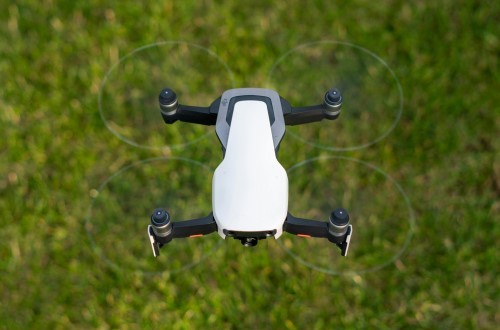 Drone ecologies
Exploring the opportunities and risks of aerial monitoring for biodiversity conservation.
Drone ecologies
Exploring the opportunities and risks of aerial monitoring for biodiversity conservation. -
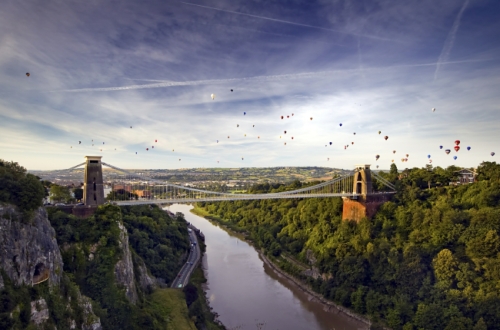 Sub-state climate change actors in Bristol: Hope for a just and inclusive transition?
Ensuring a just transition to a carbon neutral and climate resilient city in Bristol.
Sub-state climate change actors in Bristol: Hope for a just and inclusive transition?
Ensuring a just transition to a carbon neutral and climate resilient city in Bristol. -
 Live music-making in the no-fly, no-contact world
Musical and technological innovation towards a new sustainability
Live music-making in the no-fly, no-contact world
Musical and technological innovation towards a new sustainability -
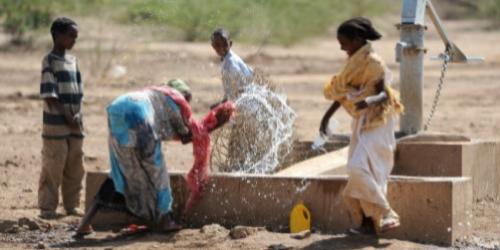 Just how tough is WASH?
Climate change is making universal access to water, sanitation and hygiene services tougher to deliver. We must be ready to adapt.
Just how tough is WASH?
Climate change is making universal access to water, sanitation and hygiene services tougher to deliver. We must be ready to adapt. -
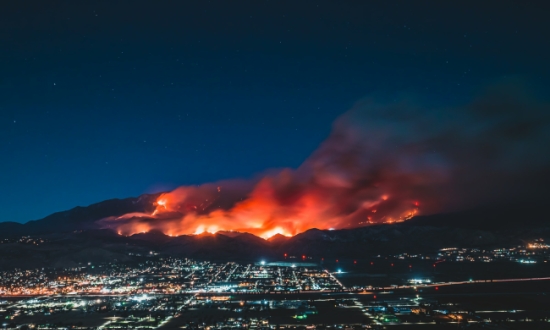 Revealing the impact of more extreme heat in US cities
Projections show our climate will warm above agreed levels. How dangerous might this extra heat be to public health?
Revealing the impact of more extreme heat in US cities
Projections show our climate will warm above agreed levels. How dangerous might this extra heat be to public health? -
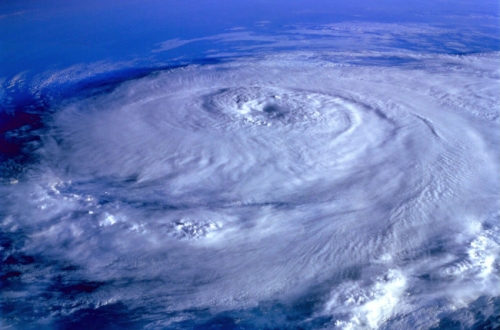 Mitigating hurricane risk in the Caribbean and beyond
Recent disastrous hurricane activity in the Caribbean highlights the urgent need to prepare appropriately for extreme changes in climate.
Mitigating hurricane risk in the Caribbean and beyond
Recent disastrous hurricane activity in the Caribbean highlights the urgent need to prepare appropriately for extreme changes in climate. -
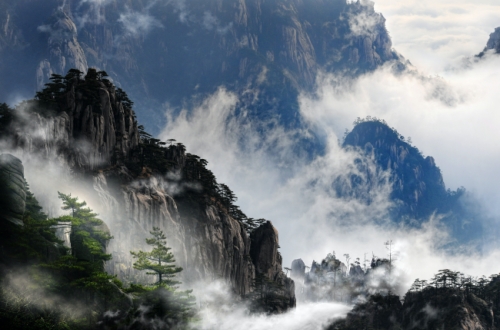 How the past is predicting the monsoon of the future
The East Asian monsoon fuels energy, industry and agriculture for over 1.5 billion people. How will it cope with rising CO2?
How the past is predicting the monsoon of the future
The East Asian monsoon fuels energy, industry and agriculture for over 1.5 billion people. How will it cope with rising CO2? -
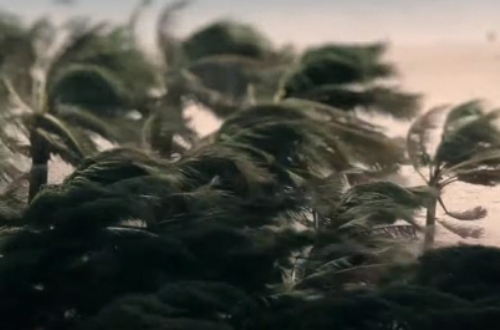 Planning for a warmer world: better predicting hurricane rainfall in the Caribbean
Hurricanes can savage small island states: the Caribbean has been battered by 264 of them since 1960. Will our changing climate alter their frequency or intensity?
Planning for a warmer world: better predicting hurricane rainfall in the Caribbean
Hurricanes can savage small island states: the Caribbean has been battered by 264 of them since 1960. Will our changing climate alter their frequency or intensity? -
 Improving our understanding of methane emissions in Brazil
Concentrations of methane in our atmosphere are rising faster than predicted. Why?
Improving our understanding of methane emissions in Brazil
Concentrations of methane in our atmosphere are rising faster than predicted. Why? -
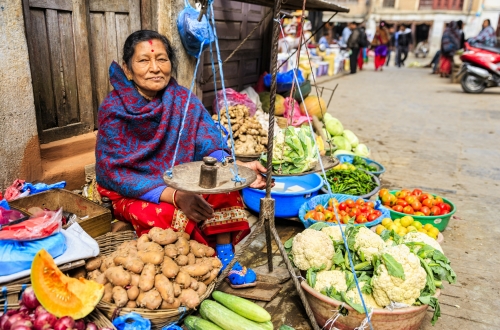 Are pollinators the key to healthy diets in Nepal?
Working together to discover the links between pollinators, climate change and human health in Nepal.
Are pollinators the key to healthy diets in Nepal?
Working together to discover the links between pollinators, climate change and human health in Nepal. -
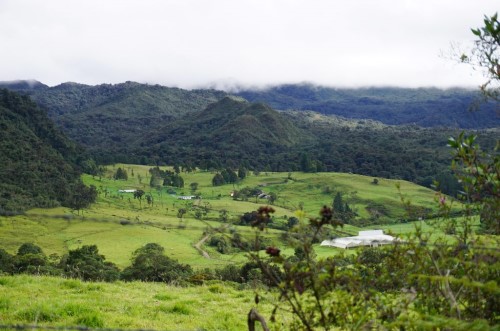 Understanding the resilience of Colombian forest biodiversity
After a long history of bloody conflict, there’s understandable pressure to make Colombia’s damaged forests more economically productive. But with so little data on these environments, it’s hard to predict the potential impacts.
Understanding the resilience of Colombian forest biodiversity
After a long history of bloody conflict, there’s understandable pressure to make Colombia’s damaged forests more economically productive. But with so little data on these environments, it’s hard to predict the potential impacts. -
 Traffic effects on the atmospheric electric field
How can we better understand how manmade pollutants are affecting the electrical environment and thus affecting nature and human health?
Traffic effects on the atmospheric electric field
How can we better understand how manmade pollutants are affecting the electrical environment and thus affecting nature and human health? -
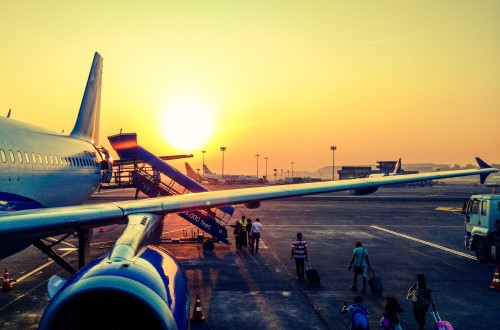 Aviation, the pandemic and carbon emissions
What will be the role of the aviation sector in a 'green recovery' and how has the pandemic changed this?
Aviation, the pandemic and carbon emissions
What will be the role of the aviation sector in a 'green recovery' and how has the pandemic changed this? -
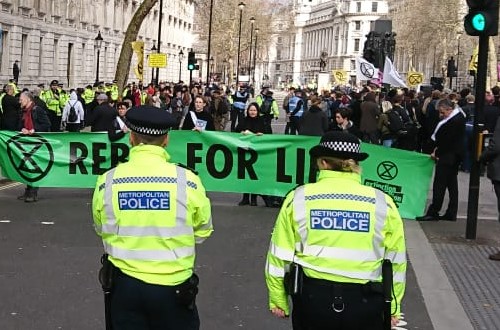 Breaking the law to save the world
What can we understand about people who break the law to save the environment and what is 'appropriate' protest in this time of great environmental change?
Breaking the law to save the world
What can we understand about people who break the law to save the environment and what is 'appropriate' protest in this time of great environmental change? -
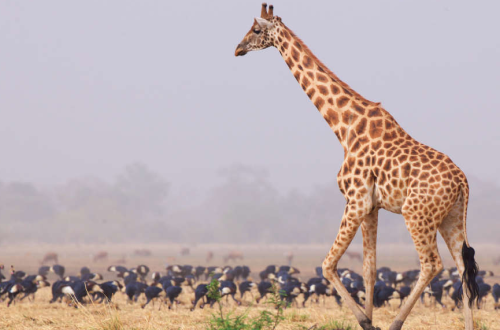 Using UAVs for conservation: Monitoring endangered giraffe populations in Northern Cameroon
How can we monitor endangered species in the wild over large distances when their populations are so small?
Using UAVs for conservation: Monitoring endangered giraffe populations in Northern Cameroon
How can we monitor endangered species in the wild over large distances when their populations are so small? -
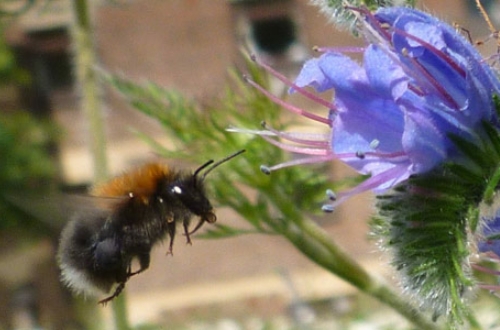 Making cities more pollinator-friendly
As we face an increasingly urban future, we need to protect and cultivate greater biodiversity in our cities for the sake of people and pollinators alike.
Making cities more pollinator-friendly
As we face an increasingly urban future, we need to protect and cultivate greater biodiversity in our cities for the sake of people and pollinators alike. -
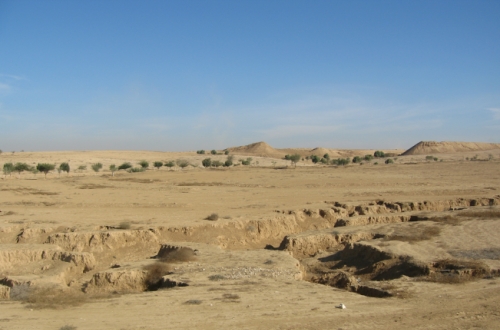 Drivers and consequences of environmental change in drylands
As climate changes, the world’s driest regions will be hit hardest. Already in a delicate balance with limited rainfall and high temperatures, dryland environments and the societies within them, are now facing immense challenges of adapting to environmental change.
Drivers and consequences of environmental change in drylands
As climate changes, the world’s driest regions will be hit hardest. Already in a delicate balance with limited rainfall and high temperatures, dryland environments and the societies within them, are now facing immense challenges of adapting to environmental change. -
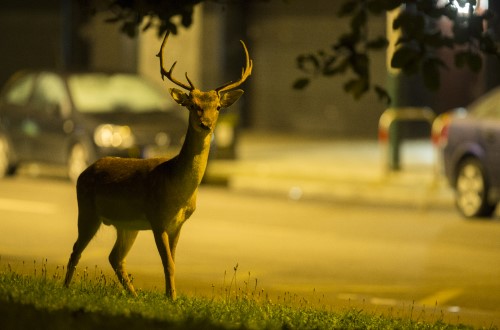 The Dark Planet: Explorations of the wild night
More than half of the world’s species are nocturnal by habit so how do we enhance our knowledge of these night time worlds and how they may be affected by climate change?
The Dark Planet: Explorations of the wild night
More than half of the world’s species are nocturnal by habit so how do we enhance our knowledge of these night time worlds and how they may be affected by climate change? -
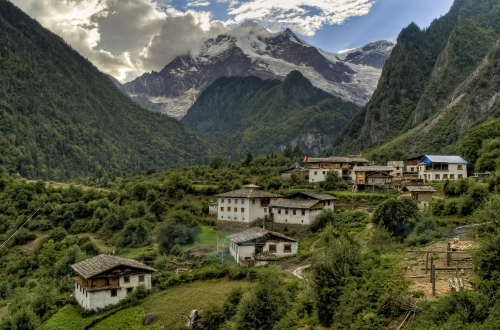 Could disappearing glaciers threaten regional food security?
A rapidly warming climate means Himalayan Nepal’s vital natural reservoirs are vanishing fast.
Could disappearing glaciers threaten regional food security?
A rapidly warming climate means Himalayan Nepal’s vital natural reservoirs are vanishing fast. -
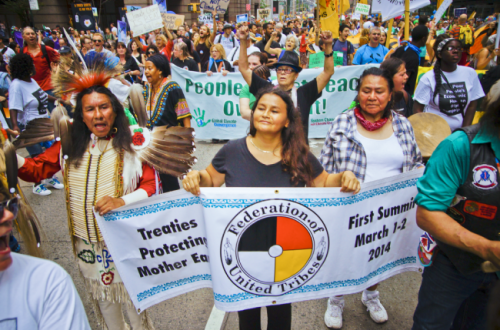 Indigenous environments
We need to rethink nature and the non-human world in response to our climate and ecological emergency.
Indigenous environments
We need to rethink nature and the non-human world in response to our climate and ecological emergency. -
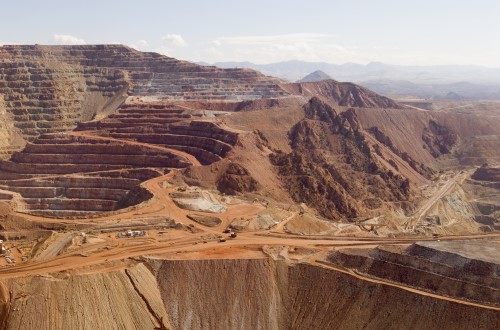 The future is copper
A theatre and research collaboration exploring the uses, abuses and future of copper mining in a globally changing environment.
The future is copper
A theatre and research collaboration exploring the uses, abuses and future of copper mining in a globally changing environment. -
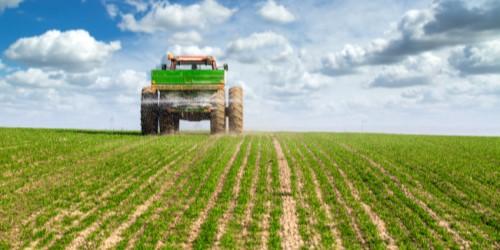 Nitrogen in a changing earth system
Humans are altering the natural nitrogen cycle which is affecting our planet and health, and contributing to climate change.
Nitrogen in a changing earth system
Humans are altering the natural nitrogen cycle which is affecting our planet and health, and contributing to climate change. -
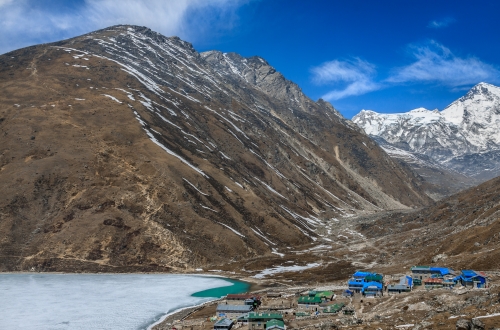 Exploring our changing ice environments
As our ice sheets melt, the Earth's ability to regulate its own temperature diminishes, and sea levels rise. But it's not just ice in Antarctica and Greenland we need to focus on – how can we help the people who rely on mountain glaciers to prepare for a future with less water, and possibly less food as a result?
Exploring our changing ice environments
As our ice sheets melt, the Earth's ability to regulate its own temperature diminishes, and sea levels rise. But it's not just ice in Antarctica and Greenland we need to focus on – how can we help the people who rely on mountain glaciers to prepare for a future with less water, and possibly less food as a result? -
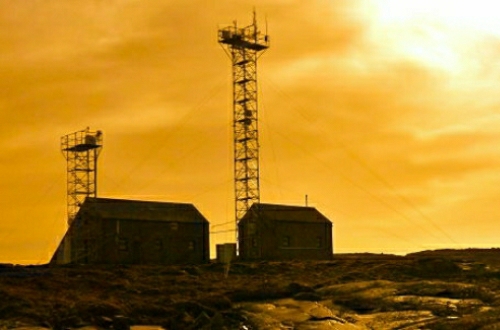 Quantifying the greenhouse emissions gap
In 2015 the Paris Agreement stipulated that global warming must be limited to well below 2°C if we are to avoid dangerous climate change. Much of this depends on reducing manmade greenhouse gases.
Quantifying the greenhouse emissions gap
In 2015 the Paris Agreement stipulated that global warming must be limited to well below 2°C if we are to avoid dangerous climate change. Much of this depends on reducing manmade greenhouse gases. -
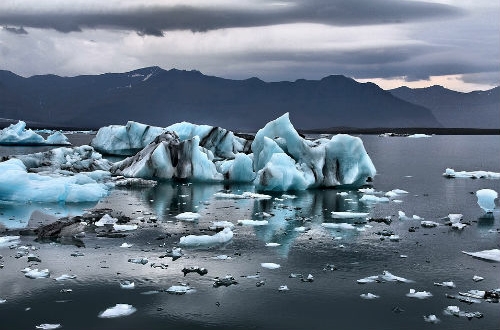 Changing ice: Developing interdisciplinary research on Earth’s cold places
This project is developing the University of Bristol’s capacity for interdisciplinary research on Earth’s cold places.
Changing ice: Developing interdisciplinary research on Earth’s cold places
This project is developing the University of Bristol’s capacity for interdisciplinary research on Earth’s cold places. -
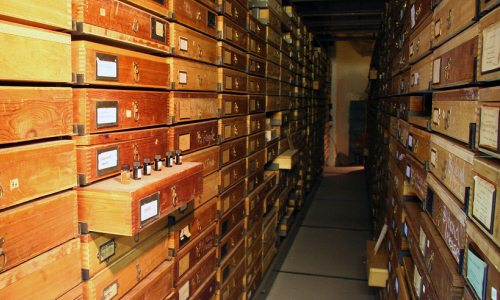 Archiving oil - an artistic exploration
Fossil fuels, oil in particular, have entirely shaped our evolution since the industrial age. How can art and science combine to spark a dialogue around our relationship with oil?
Archiving oil - an artistic exploration
Fossil fuels, oil in particular, have entirely shaped our evolution since the industrial age. How can art and science combine to spark a dialogue around our relationship with oil?
What we do and why we have impact
We dissect the effects that humans are having on society and Earth's systems, revealing the rapidly changing character of the planet and its inhabitants.
-
Diverse
Our breadth is our strength. With over 200 members, we research all aspects of our changing planet from land, sea, ice, and air – from the wilderness to the cities, human to the physical, from local to global and from the ancient past to the future.
-
Impactful leadership
We work with governments, non-governmental organisations and industry to provide advice and set the political agenda. Our research features heavily in leading reports such as the Intergovernmental Panel on Climate Change (IPCC) Assessment Reports, the National Pollinator Strategy and we verify the amount of greenhouse gases that the UK produces against the Department for Energy and Climate Change (DECC) estimates.
-
Cutting edge
We use cutting-edge models, theory, experiments and observations to understand earth system dynamics across all time scales to understand how to limit, manage and adapt to the challenges of our time. From precision greenhouse gas measurements to models of past climates to environmental justice.
